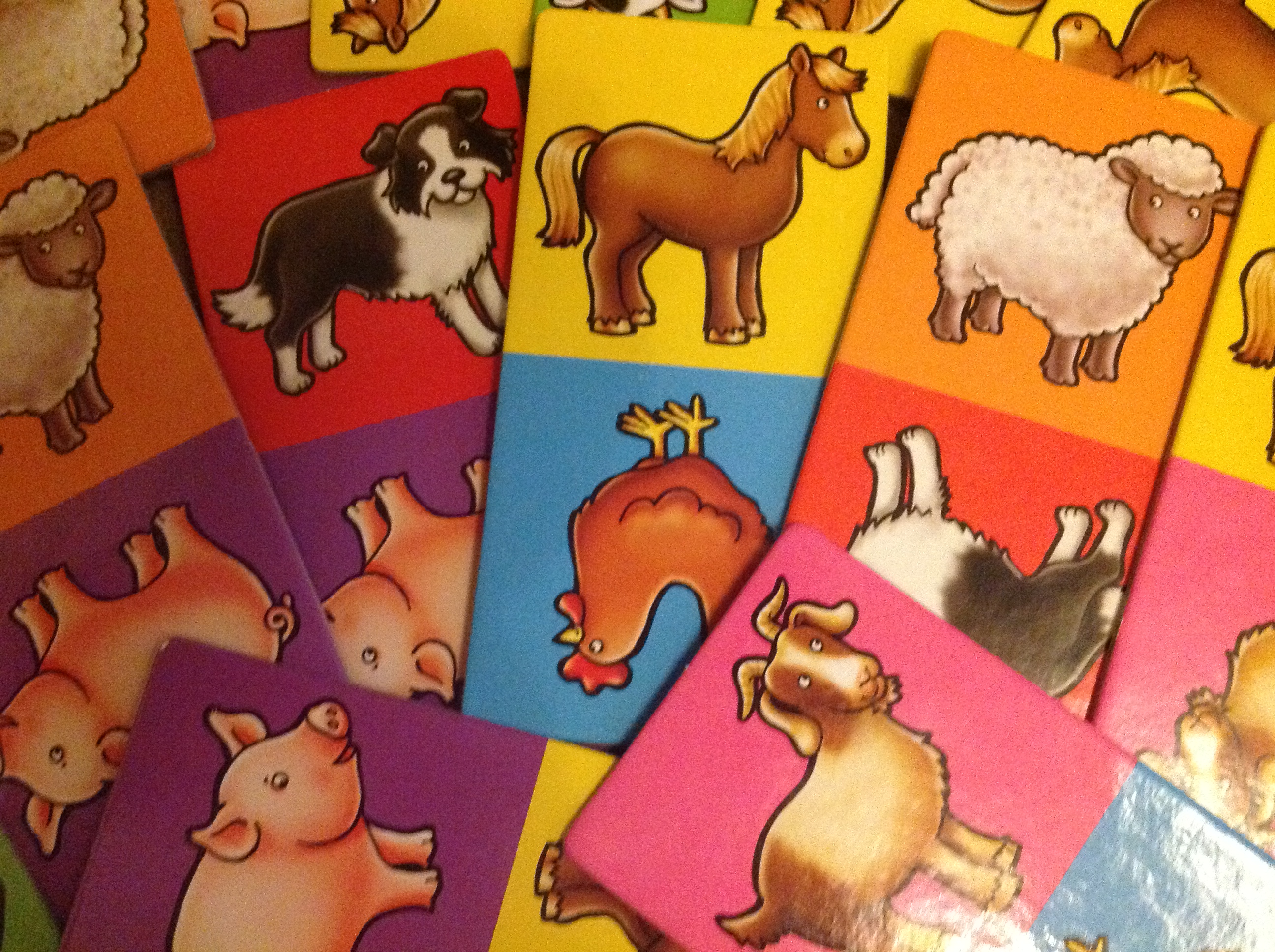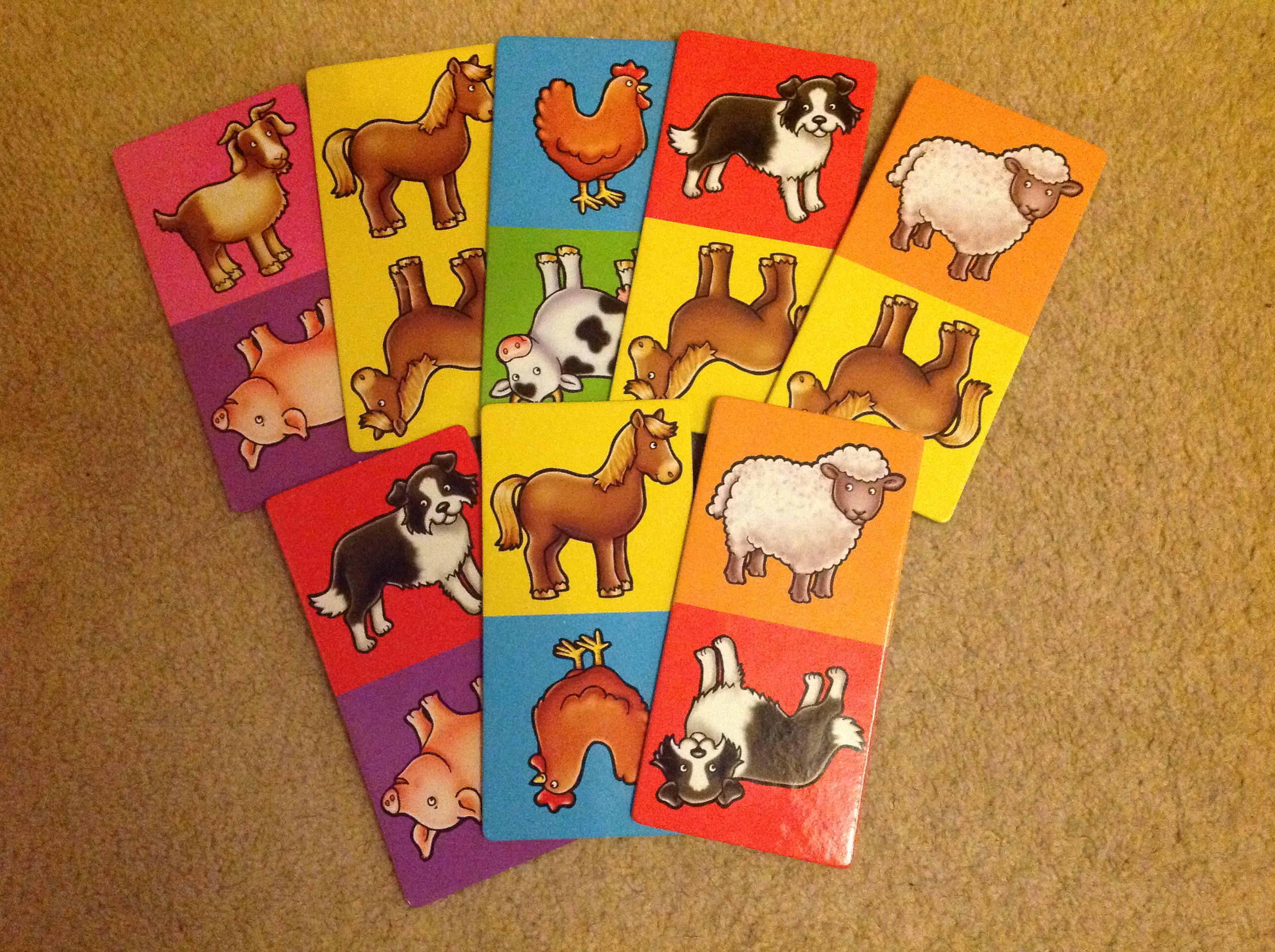As we have mentioned before, looking at an everyday toy or game and thinking of lots of different ways to use it in therapy is an important skill. I also like to show parents that you don’t need specialist equipment; you just need to think about what you are targeting.
One of my latest finds is a nice set of dominoes. I am quite picky when looking at toys, particularly for younger children; I want durability, nice pictures and bright colours. They have to survive not only bouncing around in the back of my car, but also being used frequently by many small children and occasionally being chewed. This set from Orchard Toys met my specifications!
So, we have a lovely set of children’s dominoes. Let’s see how many different things we can use them for. Remember it’s all about keeping your target in mind when playing the game
- Basic vocabulary development: lots of repetitive practise at naming the animals on the cards. Obviously you can play dominoes and you have to name the picture you are matching up. But you don’t just have to play dominoes with them if the game is too hard for your child. I have one young man who greatly enjoys me hiding the dominoes around the room while he shuts his eyes (whilst unsubtly peeking!) and then he finds them and says the names; this still meets the target of vocabulary development. You could pull them out of a bag and name them, or post them (If you have a big enough post box)
- Animal noises: If your child isn’t ready to name the animals yet, can they make the noises? Or if you put one or two dominoes on the floor and make one of the animal noises, can the child find the matching picture?
- Colours: The animals have good colours and are also on bright coloured backgrounds. So as you put your domino down, you have to name the colour.
- Speech work: This pack has a nice set of words at CVC level (consonant, vowel, consonant). I find them good practise for children who are moving on from CV, VC words in therapy. Or at a higher level you can work on blends e.g. green, blue etc
- Questions words: With a simple range of animals, you could introduce ‘who’ vs ‘where’ questions. See if your child can identify the difference and give you the correct answer. So if their domino has a pig on, you could ask ‘who is it?’ answer – pig, or ‘where does it live?’ – on a farm. You may need to introduce the idea first or show them how on your turn. You could extend this and add ‘what do they eat?’, but that is harder!
- Similarities/ differences: For older children you could see if they can generate things that are the same/ or things that are different about the two animals on their domino before they can play it in the game. For example if comparing a horse and a sheep, you could say they are the same as they both have 4 legs, but are different as you can ride a horse, but not a sheep.
- General reinforcement: To keep children engaged in therapy, you need to keep it fun and motivating. I use these dominoes with a range of language and speech targets just as a motivator – something fun to do after you have said the target sound/ word/ sentence.
- Social skills: any turn taking game is useful to practise ‘my turn’, ‘your turn’ and that important skill that you don’t always win.
Can you think of anymore?
Orchard toys do many lovely games and jigsaws. I also like their basic concepts jigsaw – nice pictures and covers a good range of early concepts, Insey Winsey spider – good for turn taking, shape and colour concept teaching and rocket game – a good reinforcer/ motivator.
For those in the UK you can buy them on line from Amazon and other such websites. If you keep looking for them in the local supermarkets (Sainsbury’s) they are often in 25% off sales as well!
I have not been paid for this review. I am just sharing some of the resources I like using in therapy.







Leave a Reply